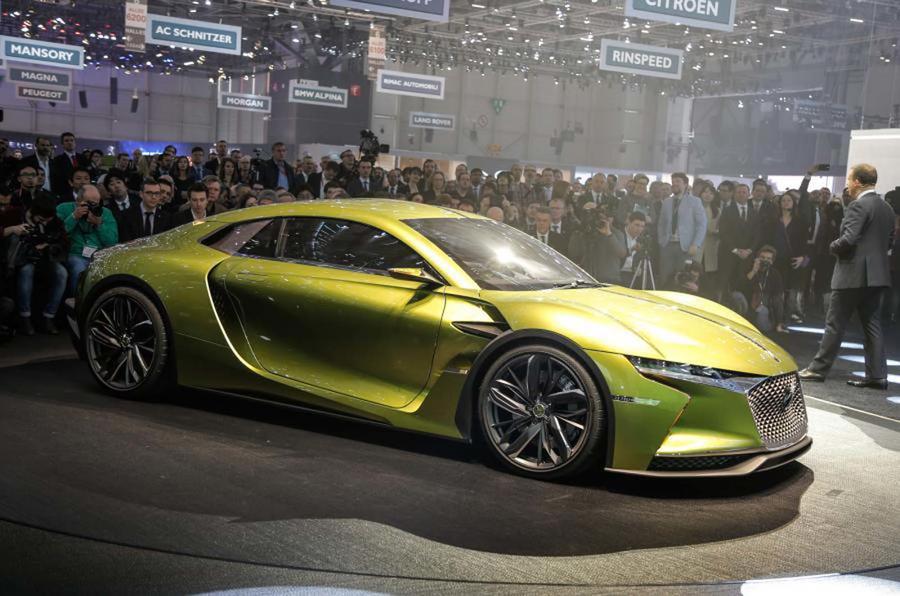The switch from combustion engined to electrified powertrains will bring greater societal issues than the car industry alone can either consider or address, PSA Group CEO Carlos Tavares has warned.
Outlining his firm’s strategy to have half its cars electrified in some form by 2020, and to offer a fully electrified line up by 2025, Tavares highlighted his concerns that the pivot to electrification wasn’t being driven by a full understanding of the consequences.
Audi reveals new e-tron Vision Gran Turismo
“What I wonder about is who is taking the 360 degree view?” said Tavares. “There is so much more to consider than selling electrified cars, from the battery creation to the battery recycling, from the rare metals being used to the extraction techniques to get them, to what it means for taxation, the total cost of ownership, the charging point infrastructure and more. If you want clean energy you need to ask how you produce that energy.
“From my perspective, the current strategy around this 360 degree view is lacking clarity. The car industry is moving quickly and strongly, but from cities to governments I am a little worried that the answer is that nobody has a cohesive approach. If they miss something then the whole strategy could backfire on us, not just as an industry but on citizens as a whole.”
Read more
Classic Mini Electric: first drive of one-off EV








Join the debate
Add your comment
Aversion to Death
Humans have a natural aversion to death. In the modern era we've become less accepting of it and strive to erradicate it. Governments play on this or are blinded by it when they quote figures for deaths caused by x or y.
Take Nox emmisions. They can kill and figures touted by official bodies put it in the thousands, even tens-of-thousands. These numbers are in part behind the push to eliminate burnt-fuels in general and Diesel in particular.
The alternative of electric power is seen as a magic bullet and I am really excited about how our future vehicles will develop. However I'm deeply concerned about the blind push to electrification.
A recent post by the BBC included the following "Last year the German giant Volkswagen tried to corner the market in cobalt. Supplies of lithium are also in hot demand. And copper has never been so badly needed.". It goes on to say "Bram Murton, a geologist with the UK’s National Oceanography Centre, says that if all the cars on Europe’s roads are electric by 2040, and if they use the same kind of batteries as the Tesla Model 3, that would require 28 times more cobalt than is produced right now."
What's really scarey is where this huge uplift in raw material requirement is likely in part to come from: the deepest sea bed hot vents. Vast expanses of unexplored, undocumented sea bed whose impact of the planets key life-giving systems is potentially profound.
I'm not trying to be callous but in our drive to save a 'few' thousands lives we might kill millions.
What I'm getting at is that the end-to-end understanding of electrification has not been fully developed and Tavares is right, it may just cause more damage than it's worth.
It also shows the arrival of non-precious metal batteries is both desparately needed and going to make someone ALOT of money.
The BBC post can be found here: http://www.bbc.co.uk/news/resources/idt-sh/deep_sea_mining
It's a fascinating read that touches on many of the unseen Human and Global issues involved. How do you see this panning out? Recently on the Beeb they posted a fascinating report
EVs
The Kiwis have just realised that their grid will not sustain mass EVs
KIWI's
Is that it, what percentage can they sustain? Can it do 10%?
over simplified.
You've over simplified a report that had many "if's" and "maybe's".
I wonder what would happen if we all went out tomorrow at 10:00 am and filled our cars, motorbikes, vans, busses, lorries, lawnmowers etc with fuel and all bought a Crunchie.
Sounds like he is looking for
Sounds like he is looking for an excuse to sit on his hands and do nothing